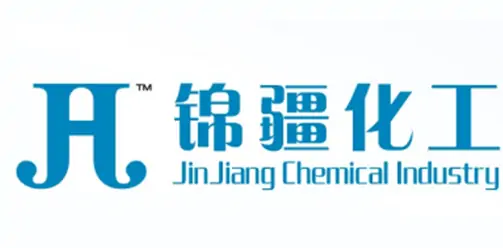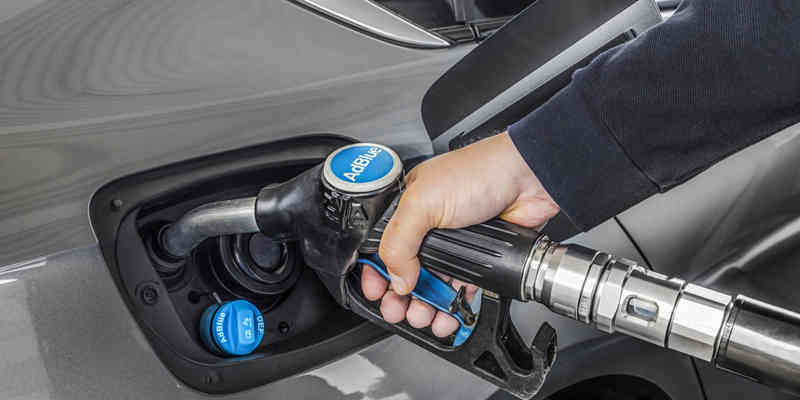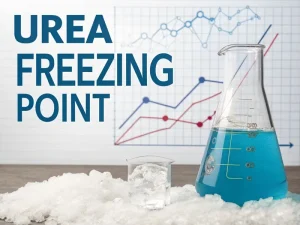
Ammonia To Urea Reaction-How Is Ammonia Converted To Urea?
Tech Blog Ammonia To Urea Reaction-How Is Ammonia Converted To Urea? Urea synthesis is based on the Bosch Meiser process, which involves the reaction of

Diesel exhaust fluid (DEF), also marketed as AdBlue and known as AUS 32, is a liquid employed to minimize the level of air pollution produced by diesel engines.
DEF is a liquid solution consisting of 32.5% urea and 67.5% deionized water, formulated as an aqueous urea solution. Urea is the core component of DEF. This specific ratio formula is carefully designed to ensure optimal chemical reaction effects during exhaust gas treatment.
Since diesel vehicles are mostly large trucks and vans, many people know very little about automotive urea. What is the use of automotive urea?
Unlike gasoline engines, diesel exhaust pollution is mainly dominated by NOx and carbon particles (we generally filter carbon particles through particle traps installed in the exhaust system). NOx in diesel exhaust is mainly nitrogen monoxide (NO). If the concentration of NO is too high, it can affect the human chest and lung function and cause damage to the central nervous system. At the same time, it is slowly converted to nitrogen dioxide (NO2) in the air.NO2 has a strong irritating odor. Inhalation can cause human respiratory diseases and is one of the main causes of acid rain. This is very harmful to people and the environment.
The primary purpose of DEF is to reduce nitrogen oxide (NOx) emissions in diesel engine exhaust. DEF uses SCR technology to convert NOx in the exhaust into harmless nitrogen (N ₂) and water (H ₂ O), effectively reducing the environmental pollution caused by diesel engines. It is widely used in diesel-powered vehicles, such as heavy-duty trucks, buses, construction machinery, and ships.
With the increasing global emphasis on environmental protection, countries have formulated stricter diesel engine exhaust emission standards. DEF enables diesel engine vehicles to meet these strict regulatory requirements. For example, in Europe, the United States, and other regions, diesel engine vehicles that do not use DEF for exhaust treatment will not pass emission testing and cannot be driven on the road. Therefore, DEF plays an indispensable role in reducing air pollution and protecting human health and the environment.
DEF must comply with strict quality standards, such as ISO 22241, which provides detailed specifications for multiple parameters of DEF, including urea content, impurity content, density, refractive index, etc., to ensure its effectiveness and stability in exhaust treatment systems.



No. The purpose of DEF is to reduce harmful nitrogen oxide (NOx) emissions from diesel engines during the combustion process.
On the other hand, gasoline engines typically use different types of emission control systems, such as three-way catalysts (TWC) or gasoline particulate filters (GPF), which do not require AdBlue or diesel exhaust fluid (DEF).
Therefore, DEF is automotive urea for diesel engines with SCR systems and should not be used in gasoline engines.
On average, 10 liters of AdBlue is enough for most drivers to cover a distance of about 6 to 8,000 miles.
However, this can vary greatly depending on the
Some heavy-duty diesel vehicles may consume AdBlue at a faster rate and require more frequent refills, while smaller diesel vehicles may consume AdBlue at a slower rate and require less frequent refills.
It is important to check the AdBlue level regularly and top up the tank when necessary to ensure the vehicle’s SCR system is functioning correctly and to avoid any potential damage or emissions problems.
DEF cannot be replaced with water in vehicles equipped with Selective Catalytic Reduction (SCR) systems.
The urea in DEF breaks down into ammonia when injected into the exhaust stream and reacts with NOx via a catalyst to produce harmless nitrogen and water vapor.
Replacing DEF with water can cause serious damage to the SCR system.Water has different chemical properties than AdBlue and can cause SCR system failure by clogging the injectors or damaging the catalyst.
The resulting damage to the SCR system can reduce engine performance and actually increase fuel consumption per mile or kilometer, resulting in lower efficiency and higher operating costs.
It is therefore important to always use DEF in diesel vehicles equipped with SCR systems and to avoid the use of water or any other alternatives. It is available at most gas stations and auto parts stores and should be stored and handled with care to ensure its purity and effectiveness in reducing emissions.
With environmental regulations continuously strengthening and the number of diesel engine vehicles increasing, the market demand for DEF is showing a rapid growth trend. More and more diesel engine manufacturers are applying SCR technology and DEF as standard configurations in new car models, further driving the expansion of the DEF market.
At the same time, DEF’s production technology is constantly developing, production efficiency is constantly improving, and costs are gradually decreasing.
In the future, with further improvement of environmental requirements and continuous technological innovation, DEF is expected to play a more important role in diesel engine exhaust treatment, and more efficient, environmentally friendly, and convenient DEF products and application technologies may emerge.
Although DEF urea has achieved significant results in diesel engine exhaust treatment, the industry faces some challenges in its development process.
Production cost is an important factor, as fluctuations in urea raw material prices and energy consumption during the production process can affect the cost of DEF.
In addition, specific issues exist with the quality stability control of DEF, its performance in low-temperature environments, market promotion, and consumer awareness.
Enterprises and research institutions can adopt various strategies to address these challenges. For example, reducing production costs by optimizing production processes and improving production efficiency; Strengthen the construction of a quality control system to ensure the stability of DEF product quality; Conducting research on low-temperature adaptability and developing DEF products suitable for low-temperature environments; Intensify market promotion efforts, enhance consumer awareness and acceptance of DEF, and promote the healthy and sustainable development of the DEF industry.
Generally, DEF urea can be stored for up to one year in sealed containers, such as intermediate bulk containers (IBCs) or storage tanks, without significant loss of quality.
However, the actual shelf life of DEF may vary depending on a number of factors, such as storage temperature, sunlight exposure, and exposure to impurities or contaminants.
Over time, the quality of DEF may begin to deteriorate even if it has not yet reached its shelf life, which may affect its effectiveness in reducing emissions.
To ensure the quality and effectiveness of DEF, it is important to store it properly in a cool, dry place away from direct sunlight and heat sources.
The container should be sealed to prevent contamination by dirt, dust or other impurities.
It is also recommended that DEF urea be used within six months of opening the container to minimize the risk of degradation and ensure optimal performance. It is also important to check the DEF level regularly and refill the tank as necessary to avoid any potential damage or discharge problems.

Tech Blog Ammonia To Urea Reaction-How Is Ammonia Converted To Urea? Urea synthesis is based on the Bosch Meiser process, which involves the reaction of

Tech Blog Urea Freezing Point characteristics The urea freezing point, especially in aqueous solutions, is a key characteristic that has significant impacts on industries ranging

Tech Blog is urea flammable or not? Urea(CH₄N₂O) a compound closely related to agriculture, industry, and medicine, often raises questions about its flammability. In theory,

JINGJIANG MELAMINE POWDER
© JINJIANG MELAMINE